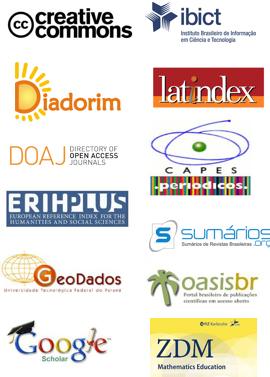COGNITIVE NEUROSCIENCE AND MATH EDUCATION: TEACHING WHAT KIDS DON’T LEARN BY THEMSELVES
DOI:
https://doi.org/10.17921/2176-5634.2012v5n2p%25pResumo
The aim of the present article is to review contributions from neuroscience to a better understanding of mathematical learning processes. A review of the theoretical frames and methodological assumptions from the developmental cognitive neuropsychology is firstly introduced. Then we analyzed the evidences from the neuroscientific investigation of typical and atypical development of mathematical abilities and the implications of those evidences in the context of mathematics education. Finally we conclude that the interactions of neuroscience and mathematics education may benefit all students, by thinking of the cognitive mechanism underlying the development of mathematical abilities.Downloads
Publicado
2015-06-18
Como Citar
Haase, V. G., Ferreira, F. O., de Moura, R. J., Pinheiro-Chagas, P., & Wood, G. (2015). COGNITIVE NEUROSCIENCE AND MATH EDUCATION: TEACHING WHAT KIDS DON’T LEARN BY THEMSELVES. Jornal Internacional De Estudos Em Educação Matemática, 5(2). https://doi.org/10.17921/2176-5634.2012v5n2p%p
Edição
Seção
Artigos


